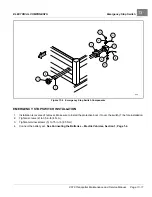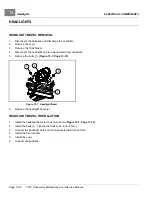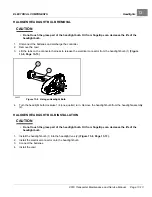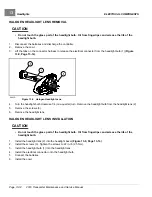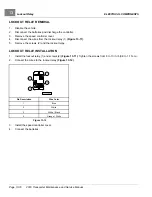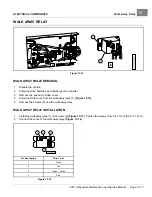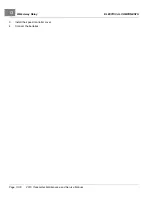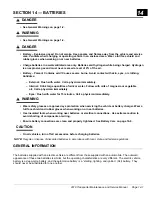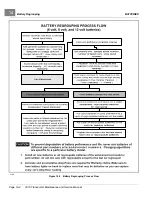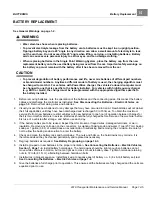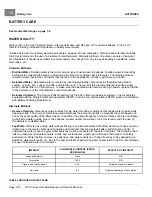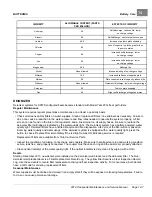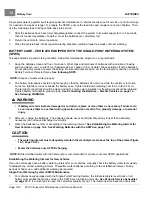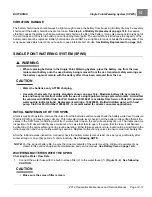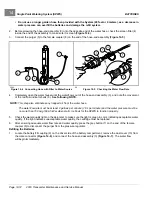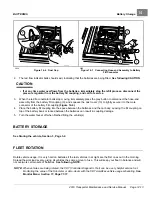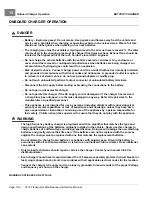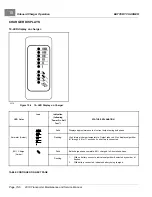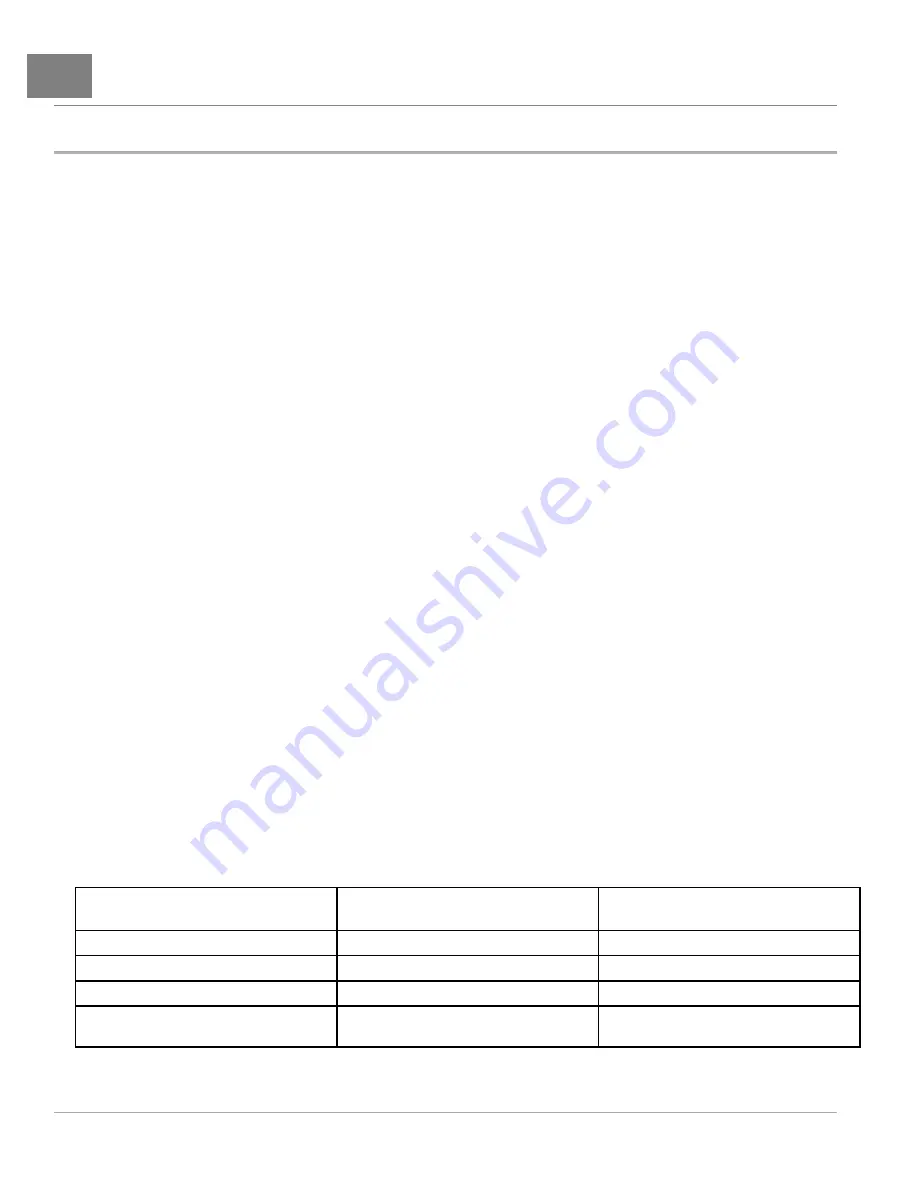
14
Battery Care
BATTERIES
BATTERY CARE
See General Warnings on page 1-2.
WATER QUALITY
Water purity is the most important factor in the performance and life span of the vehicle batteries. Club Car is,
therefore, placing increased importance on battery water quality.
Outlined below are four battery watering procedures, grouped into two categories: Preferred and Alternate methods.
Club Car recommends the use of a deionizer or distilled water. Alternate methods of reverse osmosis or tap water
are allowable but should be avoided since water quality can change from day to day depending on additives, water
main leaks, etc.
Preferred Methods
•
Distilled Water:
Distilled water is the most common type of water used in batteries. Distilled water is created by
boiling water, collecting the steam, and allowing the steam to condense back into water. The distilling process
results in water that is free of minerals that can lead to the degradation of battery performance and life.
•
Deionized Water:
Deionized water is created by inducing electrically charged resins that attract and bind to
sodium, calcium, iron, copper, chloride, and bromide ions. The result of this electrical filtering is purified water,
which contains little to no mineral ions. To make sure the deionized water remains at a high quality, replace the filter
in the deionizer per the manufacturer’s recommendations.
•
Deionized Systems:
The Service Parts Department at Club Car offers two deionizer systems: one for vehicles
equipped with the Single Point Watering System (SPWS), and one for vehicles without SPWS (used in combination
with Battery Watering Nozzle Gun).
Alternate Methods
•
Reverse Osmosis:
Reverse osmosis involves forcing water through a membrane that allows water to pass while
trapping solids. The choice of membrane used determines the amount of solids or impurities that get trapped and
hence the purity quality of the filtered water. In addition, the usage frequency of the membrane can also contribute
to the filtered water quality. Due to the variance in water quality consistency, Club Car recommends the use of
the deionizer or distilled water.
•
Tap Water:
While the use of tap water without filtering is an alternate method of battery watering, its use should be
limited due to the levels of dissolved minerals and chemicals that can degrade battery performance and life. If
unfiltered tap water is used, regular water analyses must be conducted to check for impurities. The following chart
lists the maximum allowable minerals, solids, and contaminates in parts per million and their impact on battery
performance. Water testing, however, is expensive, and water quality can change from day to day depending on
additives, water main leaks, etc. Due to the cost and labor of performing water quality tests, Club Car recommends
the use of distilled water or a deionizer.
_
IMPURITY
ALLOWABLE CONTENT (PARTS
PER MILLION)
EFFECTS OF IMPURITY
Suspended matter
Trace
N/A
Total solids
100.0
N/A
Organic and volatile matter
50.0
Corrosion of positive plates
Ammonia
8.0
Slight self-discharge of both plates
TABLE CONTINUED ON NEXT PAGE
Page 14-6
2019 Transporter Maintenance and Service Manual
Summary of Contents for TransPorter 4
Page 2: ......
Page 271: ...ELECTRIC MAIN HARNESS Wiring Diagrams Electric Main Harness 18 ...
Page 272: ... Page intentionally left blank ...
Page 273: ...ELECTRIC INSTRUMENT PANEL HARNESS Wiring Diagrams Electric Instrument Panel Harness 18 ...
Page 274: ... Page intentionally left blank ...
Page 275: ...ELECTRIC ACCESSORIES HARNESS Wiring Diagrams Electric Accessories Harness 18 ...
Page 276: ... Page intentionally left blank ...
Page 282: ...NOTES ...
Page 283: ...NOTES ...
Page 284: ...NOTES ...
Page 285: ......
Page 286: ......


